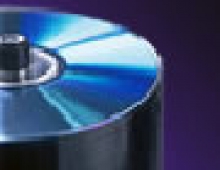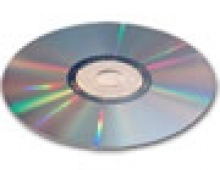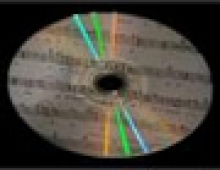
Canadians make new rules about media tariffs...
As the decision says: "...Application to vary the tariff of levies to be collected by CPCC, in 2001 and 2002, for the sales of blank audio recording media , in Canada, in respect of the reproduction for private use of musical works embodied in sound recordings, of performer's performances of such works and of sound recordings in which such works and performances are embodied..."
"...Reasons for the decision on CSMA's and CPCC's joint application to vary the tariff certified for the years 2001 and 2002.
On December 16, 2000, the Board certified the Private Copying Tariff, 2001-2001. On December 14, 2001, the Canadian Storage Media Alliance (CSMA) and the Canadian Private Copying Collective (CPCC) jointly asked that the tariff be varied. The requested modifications would set out more specific reporting requirements with respect to the types of media sold; also, CPCC would be expressly allowed to share with others some of the information it gathers from media importers. The application relies inter alia on section 66.52 of the Copywrite Act. This provision empowers the Board to vary its decisions “if, in [the Board’s] opinion, there has been a material change in circumstances since the decision was made”
The December 14, 2001 letter and a further letter dated January 14, 2002 detailed a number of allegations to the effect that the blank media market is much more complex now than a year ago and that, contrary to what was expected at the time the tariff was certified, those who market blank media do not constitute a reasonably stable and identifiable group. As supporting evidence, the Board received on February 12, 2002 a letter from CPCC’s Manager of Collection and Enforcement, Ms. Laura Davison.
According to her, the current tariff wording relies among other things on the understanding that a relatively small number of readily identifiable suppliers of blank media represented the lion’s share of the Canadian market. Now, however, a large number of small suppliers have surfaced. These are difficult to trace and they provide lesser known brands to retailers, often with the view of knowingly avoiding paying the levy set in the tariff. The identity of these suppliers is “fluid”, as are the brand names they use, which makes the enforcement of the tariff even more difficult.
It also seems that retailers are reluctant to allow CPCC access to data that could be used to determine whether the levy has been paid on the media they sell to consumers.
Ms. Davison’s statements are accepted as true. Any reading of advertising inserts, or any visit to a store that retails blank audio media, can only serve to confirm that lesser known brands now account for a much larger share of sales than could have been reasonably anticipated a year ago. The most likely explanation for this change is a series of attempts to avoid paying the levy. This turn of events, which could not have been predicted at the time the tariff was certified, considerably changes the profile of the relevant market; that in itself is sufficient for the Board to conclude that a material change has occurred.
Sometimes, the materials filed with an application to vary are not sufficient to dispose of the application. In such cases, the Board reopens the file and asks for further evidence. In this instance, the Board is satisfied that the application as filed establishes not only the need to vary the -tariff but also the appropriateness of the changes being sought.
The applicants ask that CPCC be provided with more information on the types, brand names and other characteristics according to which supports are sold or inventoried. They also ask that CPCC clearly be allowed to share with others, in the course of its investigations, the importers’ corporate name, the trade names under which they do business and the description of the various types of media sold.
These are eminently practical measures aimed at ensuring the efficient enforcement of the tariff. The increase in the number of suppliers of media makes it necessary to ask the help of others to identify those who seek to evade the levy. CSMA, which represents the most important suppliers of recording media, supports the measures. The result can only be a more efficient, more enforceable tariff.
The application to vary the Private Copying Tariff, 2001-2002 is granted. The text of the tariff is amended as follows:
Paragraph 8(d) of the tariff is replaced by the following:
(d) the number of units of each type of blank audio recording medium on account of which the payment is being made. The “type of blank audio recording medium” refers to the type, brand name and recording capacity of the blank audio recording medium, as well as to any other characteristics according to which the entity filing the report sells the medium or identifies it in its inventory;
Subsection 10(1) of the tariff is replaced by the following:
(1) Subject to subsection (2) to (5), CPCC shall treat in confidence information received from a manufacturer or importer pursuant to this tariff, unless the manufacturer or importer consents in writing to the information being treated otherwise.
Section 10 of the tariff is amended by adding the following:
(5) Notwithstanding the foregoing, the corporate name of a manufacturer or importer, the trade name under which it carries on business and the types of blank audio recording media reported by it pursuant to paragraph 8(d) shall not be considered confidential information..."
On December 16, 2000, the Board certified the Private Copying Tariff, 2001-2001. On December 14, 2001, the Canadian Storage Media Alliance (CSMA) and the Canadian Private Copying Collective (CPCC) jointly asked that the tariff be varied. The requested modifications would set out more specific reporting requirements with respect to the types of media sold; also, CPCC would be expressly allowed to share with others some of the information it gathers from media importers. The application relies inter alia on section 66.52 of the Copywrite Act. This provision empowers the Board to vary its decisions “if, in [the Board’s] opinion, there has been a material change in circumstances since the decision was made”
The December 14, 2001 letter and a further letter dated January 14, 2002 detailed a number of allegations to the effect that the blank media market is much more complex now than a year ago and that, contrary to what was expected at the time the tariff was certified, those who market blank media do not constitute a reasonably stable and identifiable group. As supporting evidence, the Board received on February 12, 2002 a letter from CPCC’s Manager of Collection and Enforcement, Ms. Laura Davison.
According to her, the current tariff wording relies among other things on the understanding that a relatively small number of readily identifiable suppliers of blank media represented the lion’s share of the Canadian market. Now, however, a large number of small suppliers have surfaced. These are difficult to trace and they provide lesser known brands to retailers, often with the view of knowingly avoiding paying the levy set in the tariff. The identity of these suppliers is “fluid”, as are the brand names they use, which makes the enforcement of the tariff even more difficult.
It also seems that retailers are reluctant to allow CPCC access to data that could be used to determine whether the levy has been paid on the media they sell to consumers.
Ms. Davison’s statements are accepted as true. Any reading of advertising inserts, or any visit to a store that retails blank audio media, can only serve to confirm that lesser known brands now account for a much larger share of sales than could have been reasonably anticipated a year ago. The most likely explanation for this change is a series of attempts to avoid paying the levy. This turn of events, which could not have been predicted at the time the tariff was certified, considerably changes the profile of the relevant market; that in itself is sufficient for the Board to conclude that a material change has occurred.
Sometimes, the materials filed with an application to vary are not sufficient to dispose of the application. In such cases, the Board reopens the file and asks for further evidence. In this instance, the Board is satisfied that the application as filed establishes not only the need to vary the -tariff but also the appropriateness of the changes being sought.
The applicants ask that CPCC be provided with more information on the types, brand names and other characteristics according to which supports are sold or inventoried. They also ask that CPCC clearly be allowed to share with others, in the course of its investigations, the importers’ corporate name, the trade names under which they do business and the description of the various types of media sold.
These are eminently practical measures aimed at ensuring the efficient enforcement of the tariff. The increase in the number of suppliers of media makes it necessary to ask the help of others to identify those who seek to evade the levy. CSMA, which represents the most important suppliers of recording media, supports the measures. The result can only be a more efficient, more enforceable tariff.
The application to vary the Private Copying Tariff, 2001-2002 is granted. The text of the tariff is amended as follows:
Paragraph 8(d) of the tariff is replaced by the following:
(d) the number of units of each type of blank audio recording medium on account of which the payment is being made. The “type of blank audio recording medium” refers to the type, brand name and recording capacity of the blank audio recording medium, as well as to any other characteristics according to which the entity filing the report sells the medium or identifies it in its inventory;
Subsection 10(1) of the tariff is replaced by the following:
(1) Subject to subsection (2) to (5), CPCC shall treat in confidence information received from a manufacturer or importer pursuant to this tariff, unless the manufacturer or importer consents in writing to the information being treated otherwise.
Section 10 of the tariff is amended by adding the following:
(5) Notwithstanding the foregoing, the corporate name of a manufacturer or importer, the trade name under which it carries on business and the types of blank audio recording media reported by it pursuant to paragraph 8(d) shall not be considered confidential information..."




















